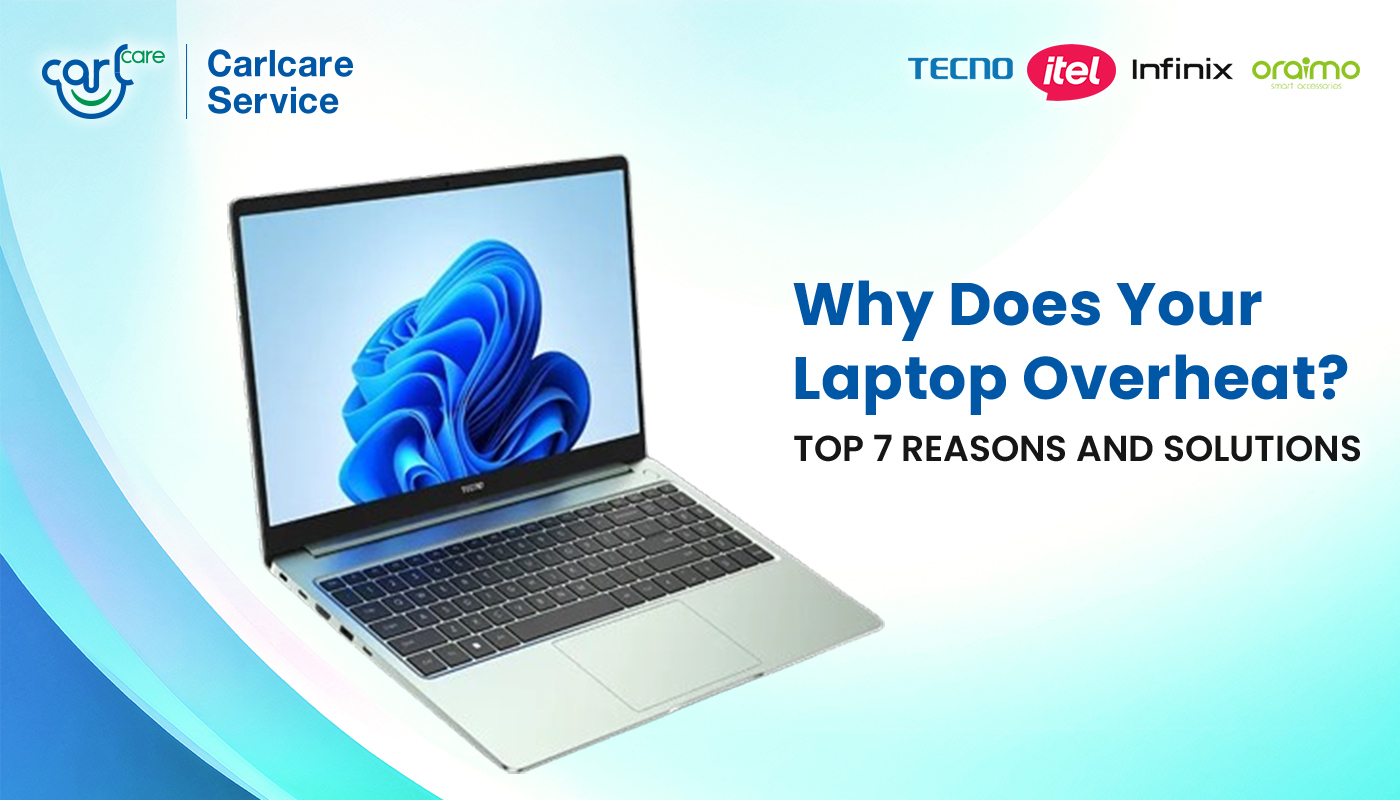
The increasing reliance on laptops for various tasks has made overheating a prevalent issue. An overheated laptop not only hampers performance but also poses a risk to its components. In this comprehensive guide, we explore the top reasons behind laptop overheating and provide detailed solutions to keep your device cool and functional.
Top Reasons Behind Laptop Overheating:
- Blocked Ventilation or a Faulty Fan:
Description: Adequate ventilation is essential for a laptop's cooling system. Dust, debris, or a malfunctioning fan can obstruct proper airflow, leading to overheating.
Solution: Regularly clean the laptop vents using compressed air. If the fan is faulty, consider replacing it to ensure optimal cooling.
- Outdated or Corrupt Drivers:
Description: Drivers act as communication bridges between hardware and software. Outdated or corrupt drivers can cause your laptop to work inefficiently, leading to overheating.
Solution: Regularly update drivers through the device manager or the manufacturer's website. Ensure all drivers are compatible with your operating system.
- Sudden Power Surges - Hard Drive, Memory, Graphics Card, or Power Supply:
Description: Crashes can occur if components like the hard drive, memory, graphics card, or power supply become corrupted or damaged due to power surges or physical trauma.
Solutions: Hard Drive Issues: Handle your laptop with care to avoid physical trauma. Replace or update the hard drive if it shows signs of damage.
Memory Issues: Overheating or faulty RAM chips can lead to memory issues. Ensure proper ventilation and replace faulty RAM.
Graphics Card Errors: Dust exposure can lead to graphics card errors. Regularly clean your laptop's internal components.
Power Supply Issues: Avoid overloading the adapter and replace it if faulty to prevent power supply issues.
- Malware and Viruses:
Description: Malware and viruses can corrupt data, erase files, slow down the system, and contribute to overheating.
Solutions:
- Check for Infections: Regularly perform malware scans using reputable antivirus software.
- Invest in Antivirus Software: Choose reliable antivirus software to safeguard your laptop from potential threats.
- Regular System Scans: Schedule routine system scans to detect and eliminate any malicious activity.
Now Some Preventive Measures:
- Handle laptop components, such as the hard drive, memory, graphics card, and power supply, with care to prevent physical damage.
- Install and regularly update reliable antivirus software to protect against malware and viruses.
- Ensure proper ventilation by keeping vents clean and unobstructed.
- Regularly update drivers to ensure compatibility and optimal performance.
- Insufficient RAM:
Reason: Insufficient RAM (Random Access Memory) becomes a bottleneck when the demands on a laptop surpass its memory capacity. Running multiple applications simultaneously or working with large files requires more RAM for efficient processing. When RAM is overwhelmed, the system resorts to using the slower hard drive or SSD for temporary storage, resulting in slowdowns and overheating.
Solution: Upgrading the RAM capacity is the key solution to handle multitasking more efficiently. By increasing the amount of available RAM, the laptop can accommodate a higher workload, ensuring smoother performance even when running demanding applications or handling large files. This not only alleviates overheating issues but also enhances overall system responsiveness.
- Overheating Due to Environment:
Reason: Operating a laptop in a hot environment compounds internal temperatures, intensifying the risk of overheating. High ambient temperatures hinder the cooling efficiency of the laptop's internal components, leading to increased thermal stress and potential performance issues.
Solution: To mitigate overheating due to environmental factors, it's crucial to use the laptop in a well-ventilated area. Ensuring proper airflow around the laptop allows the cooling system to dissipate heat effectively. Additionally, investing in cooling pads or laptop cooling stands can further enhance the cooling mechanism by providing additional ventilation and reducing direct contact with surfaces that might trap heat.
- Inadequate Storage Space:
Reason: Running out of storage space can impact a laptop's performance, causing overheating as the system struggles to manage files. When storage space is limited, the operating system may struggle to allocate temporary files and manage data, leading to increased processing demands and subsequent overheating.
Solution: To address inadequate storage space, a proactive approach is essential. Regularly clean up unnecessary files by deleting duplicates, temporary files, and items in the recycle bin. Uninstalling unused applications can free up valuable space. Consider upgrading to a higher-capacity storage device, such as a larger hard drive or a faster SSD, to accommodate the growing demands of modern applications and prevent performance issues related to storage constraints. This ensures the laptop operates more efficiently, reducing the risk of overheating caused by storage-related bottlenecks.
Get Genuine Repair for Your Infinix Laptop From Carlcare:
Entrust your Infinix laptop to the experts at Carlcare for genuine and reliable repairs. As the authorized service provider, Carlcare ensures the authenticity of every spare part used in the repair process, preserving the integrity of your device. Our team of expert technicians is well-versed in the intricacies of Infinix laptops, guaranteeing precise diagnosis and effective solutions. With a pan-India network of service centers, Carlcare brings convenience to your doorstep, providing accessible and trustworthy repair services for your Infinix laptop. Contact us on 18004190525, and rely on us for a seamless and authentic repair experience that restores your laptop to its optimal performance.

















